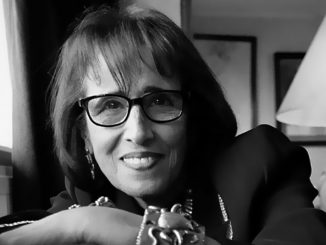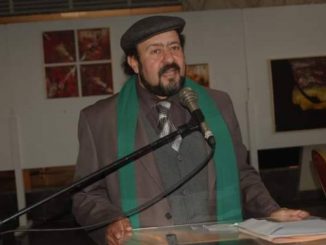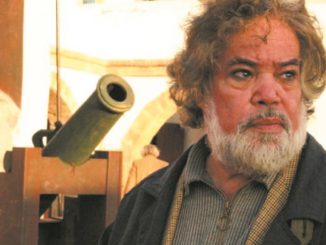
Everyone agrees that Tayeb Saddiki was a genius in many ways. He spoke many languages, including Latin and Hebrew, just as he was a great intellectual, eager for books and multi-talented.
In addition to his contributions in fields such as painting, calligraphy, film and television, Saddiki is considered the father of Moroccan theatre and its founder without question. He began his career with the workers’ theater, which he founded in 1957 at the request of the Moroccan Labor Union and in which he presented plays such as “The Heir”, before founding the municipal theater troupe, the Seddiki troupe in 1963, “Massrah Ennass” in 1970 and the “Mobile Theater” in 1974.
Saddiki has directed more than 80 plays in addition to the film “Zeft” and four short films. He has participated in the writing of numerous texts for film and television. He has also adapted many international works and acted in many famous films such as “Lawrence of Arab” and “The Message”.
Tayeb Saddiki was born in 1939 in Essaouira, where he grew up in the atmosphere of tolerance between Muslims, Christians and Jews living in that city, before moving to Casablanca at the age of 9. He studied there until he passed his baccalaureate. Afterwards, he continued his studies in Paris, where he obtained a degree in literature, as well as training in theater under the supervision of great French playwrights.
Tayeb Saddiki was known for his frankness and courage, which earned him many criticisms and accusations, particularly following his famous visit to Israel after the Oslo agreement and his friendship with its former foreign minister, Shimon Peres.
Tayeb Saddiki passed away in 2016, leaving behind him a prestigious theatrical career that made him one of the most famous and prominent Moroccan and Arab playwrights. His most famous plays include: “Diwan de Sidi Abderrahman Al-Majdoub”, “Sidi Yassine fi attariq”, “Al Haraz”, “Momo Boukharsa”, “Maquamat Badi Azzaman Al Hamdhani”, “Kaftan Al-Hob”, “Soltane Talba”, “Azizi”, etc.




Be the first to comment